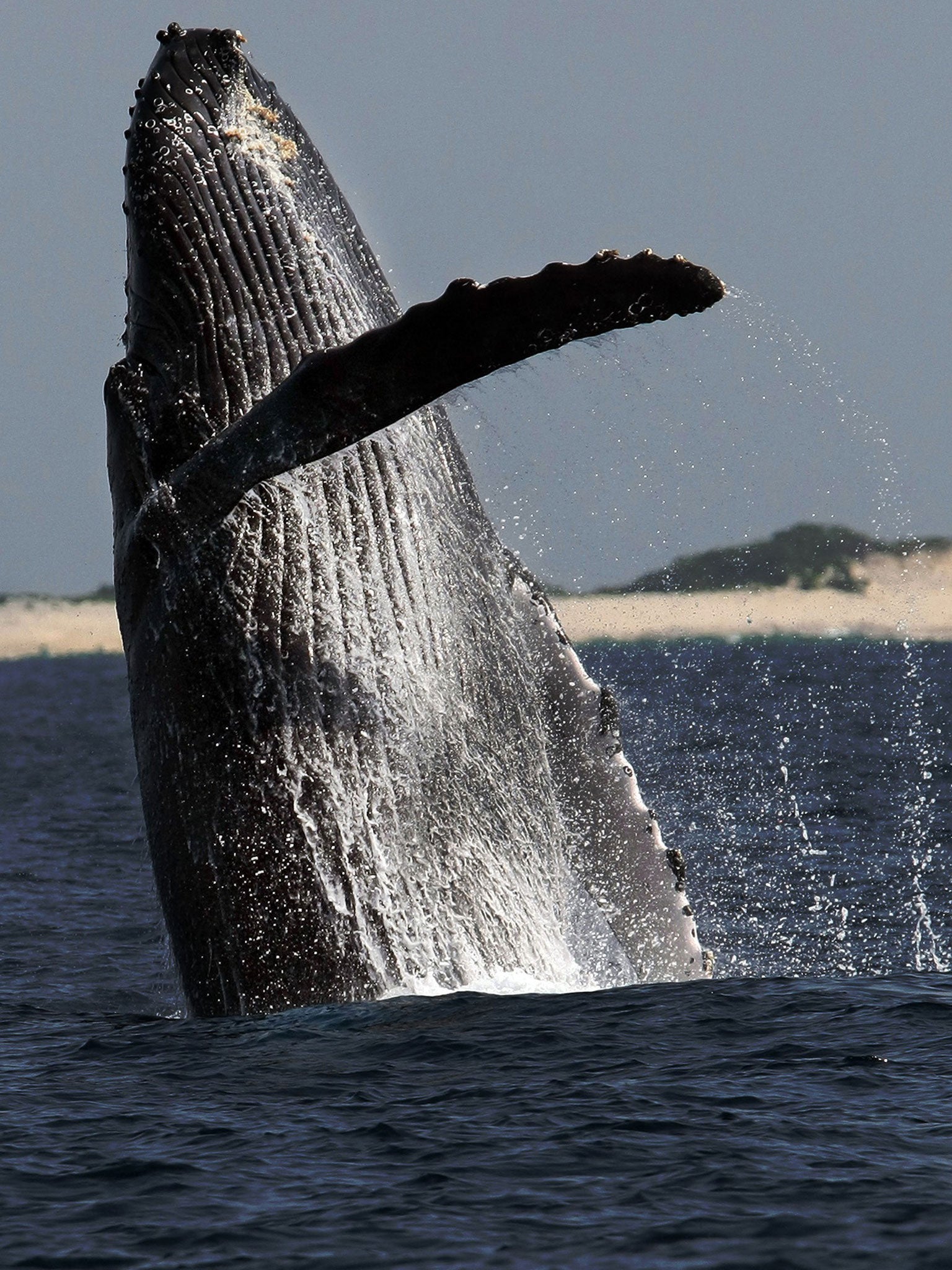£100,000 for whale vomit? That’s sick
Why is ambergris worth so much money? Simon Usborne holds his nose and finds out

Your support helps us to tell the story
From reproductive rights to climate change to Big Tech, The Independent is on the ground when the story is developing. Whether it's investigating the financials of Elon Musk's pro-Trump PAC or producing our latest documentary, 'The A Word', which shines a light on the American women fighting for reproductive rights, we know how important it is to parse out the facts from the messaging.
At such a critical moment in US history, we need reporters on the ground. Your donation allows us to keep sending journalists to speak to both sides of the story.
The Independent is trusted by Americans across the entire political spectrum. And unlike many other quality news outlets, we choose not to lock Americans out of our reporting and analysis with paywalls. We believe quality journalism should be available to everyone, paid for by those who can afford it.
Your support makes all the difference.There is some confusion about whether the waxy substance Ken Wilman and his dog, Madge, picked up from a Lancashire beach came from a whale’s mouth, as widely reported, or its bottom. We do know, however, that ambergris, mined by nature from the intestines of sperm whales, is highly-prized (Wilman’s piece could be worth £100,000). We know, too, that it’s present in many perfumes, intoxicates those who resort to violence in search of it, and can add depth, grated, to scrambled eggs.
Whales usually throw up what they can’t digest, including squid beaks. But, according to an authoritative paper by Robert Clarke, a late English marine biologist, in about one in 100 animals, stuff goes the wrong way. It gets stuck in the rectum, grows, incorporates other waste and bacteria, hardens, bursts the rectum, kills the whale and floats away.
By this unsavoury method, it would appear Wilman had in his hands a sort of poo rather than solid sick. Either way, stranger than ambergris itself is the way its scarcity and delicate scent have enraptured generations. For centuries, it has been used in incense, medicines and in perfumes, where it stabilises and enhances other fragrances.
Chris Kemp, a British biologist based in the US, is another ambergris expert. While researching his book, Floating Gold: A Natural (And Unnatural) History of Ambergris, he tried for months to infiltrate a shady black market in the substance, which occupies a legal grey area in many countries thanks to its links to an endangered species. Many perfume houses claim to use synthetic substitutes but, Kemp says from his home in Michigan: “I spoke to a French ambergris trader who claimed to sell enormous boulders to top perfumiers via middlemen. There’s clearly a big trade in it.” So big that, several years ago, rival hunters ended up in court after coming to blows as they descended on a large lump on a beach in New Zealand.
Wilman’s three-kilo lump is relatively modest. The biggest recorded was the size of a small car and weighed 455kg (to Wilman’s 3kg). It was sold in London in 1914 for £23,000 (about £2m in today’s money). But even small discoveries are rare. Kemp says he hears of two or three finds a year, including one in Bournemouth last summer.
Strangely, in the same way it’s strange that rich people have been known to use hair conditioner containing bull semen, and drink coffee from made from beans excreted by civets, ambergris is also a delicacy. Charles II liked it sprinkled on his eggs, a dish Kemp felt obliged to recreate. “It wasn’t pleasant,” he recalls. “It looks like pepper but has an unpleasant texture and weird greasiness. It also gets stuck in your teeth.”
Join our commenting forum
Join thought-provoking conversations, follow other Independent readers and see their replies
Comments